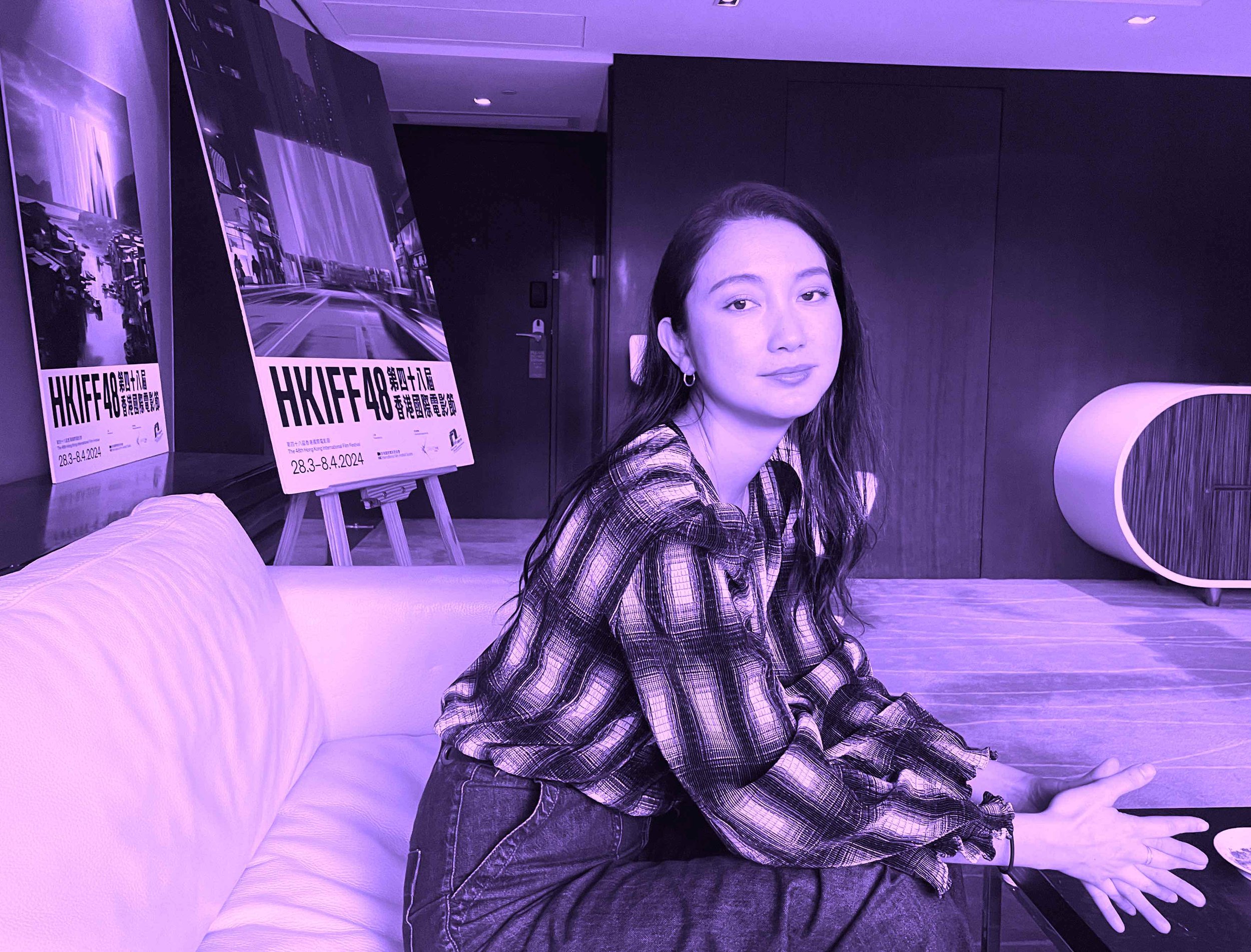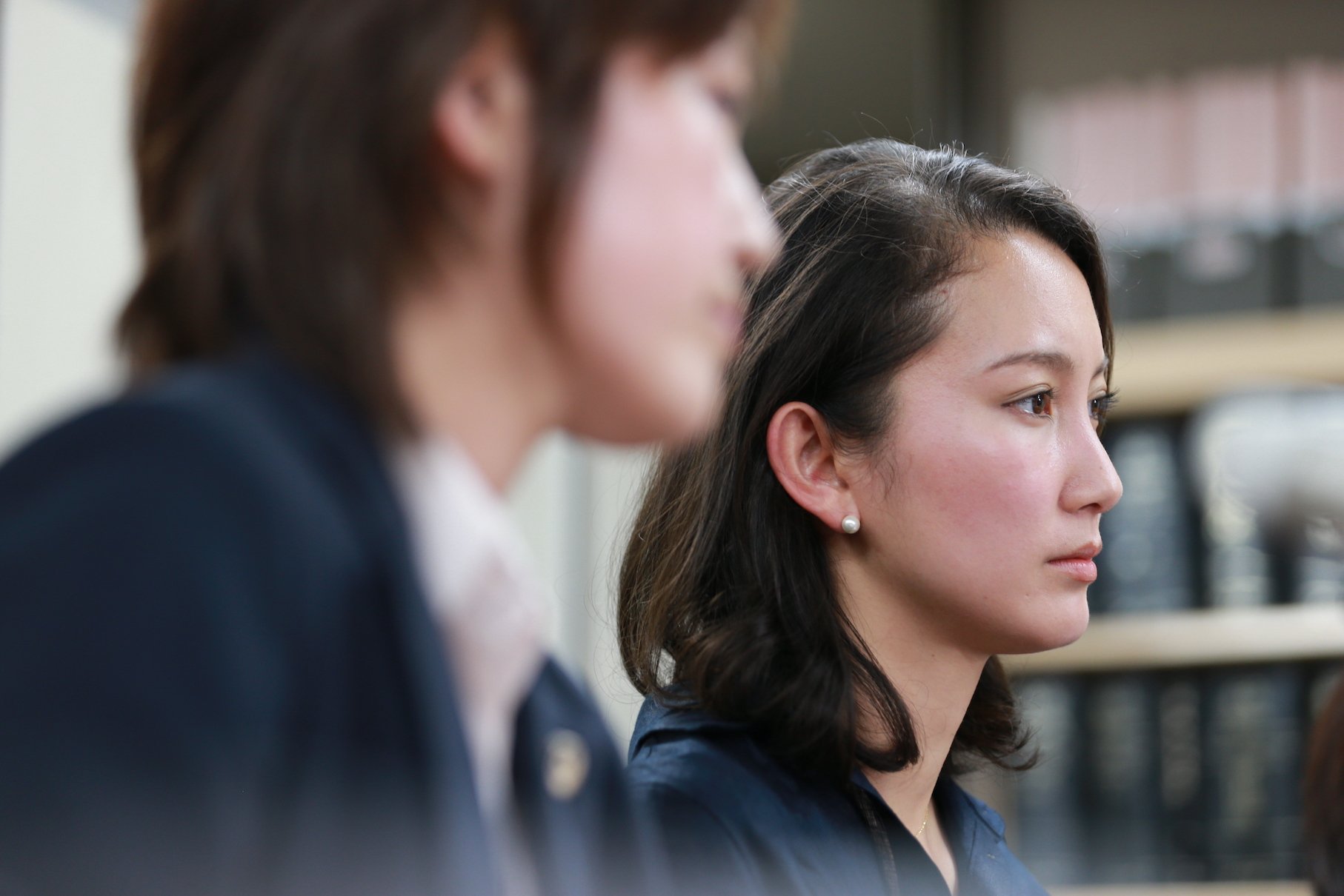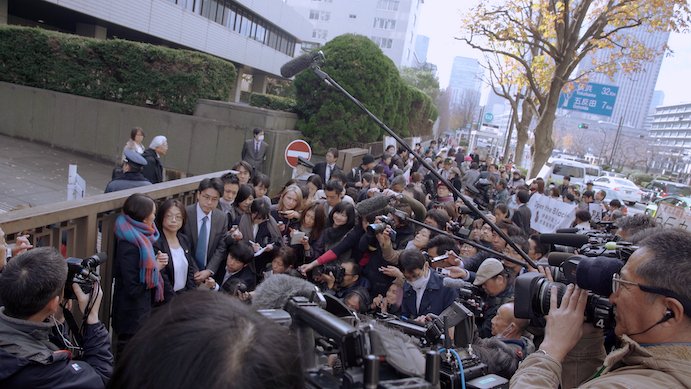On Blast
Anyone thinking journalist Shiori Ito would quietly accept Japan’s sexual assault laws hasn’t met shiori Ito.
“Thank you!”
That’s journalist and filmmaker Shiori Ito’s first response when asked, “So where’s this motherfucker now?”, in reference to popular (?) veteran news reporter Noriyuki Yamaguchi. As far as she knows, he’s currently (still?) writing for conservative news outlets in Japan, and the question refers to the fallout of Ito’s 2015 rape accusation, for which she never got any justice, and a crime for which he was never formally charged (Yamaguchi maintains the two had consensual sex). “I can never say it, but I love hearing other people say it,” Ito says with a glint of satisfaction in her eye.
Rather than sit on her hands and remain silent, like too many victims of sexual violence feel compelled to, Ito channelled her frustration and fury (among other emotions) into Black Box Diaries, the self-funded, personal documentary companion to the 2017 book. Working with Swedish journalist Hannah Aqvilin and the late Japanese producing titan Mitsunobu Kawamura (Yuya Ishii’s The Moon, The Journalist) it’s a chronicle of Ito’s dealings with the unresponsive Tokyo police, the media and the predictable knuckle-dragging backlash that resulted from her audacity to report such a “beloved”, “respected” and “hard-working” man – key word being man – for such behaviour. It’s a good thing she made the film too, otherwise nine years later she might still be wrestling with her trauma.
“There was nothing soothing about making this. During production I had to pause many times, because I couldn't deal with it. I couldn't even look at the footage, but I don’t think the documenting part was hard. It did help me process; the police weren’t doing the job,” Ito begins. Not only did she have the privilege of journalist rigour as back up, she considers herself fortunate to have a naturally enquiring nature. Both were balms – for a bit. “When I wrote the book in 2017, it was more focused on the discussion around my case, and what was behind the law and everything. But [with the film] I had to face what was going on in me. So I decided to go through all my old diaries, and started trying to remember what I was feeling because I completely left that part behind – for good reason. But I had to come back eventually and I think making the film was one of the best ways to do so.”
Ito is relaxed and youthful, and remarkably forthcoming, perhaps not surprising given she’s put her life out there for all to judge – and judge they do – for nearly a decade. With its Sundance premiere in the rearview, Black Box Diaries is kicking off its world tour, touching down in Hong Kong for three sold-out screenings at HKIFF. Like the book, the doc details the hard, often fruitless, frequently agonising road Ito took in demanding accountability for Yamaguchi’s assault (alleged assault), and in doing so becoming the face of #MeToo in Japan. Ito’s incident, as she sometimes refers to it, happened right before the boatload of accusations against Hollywood producer Harvey Weinstein exploded and reset the landscape on how we collectively view sex crimes. For a while at least. “I was so excited, and there was a little bit of vindication, but then it crushed me that it wasn’t really happening in Japan in the same way. The solidarity was missing.”
That enquiring nature led Ito to study journalism in the US and an internship with Thomson Reuters at home in Japan. Her willingness to remind everyone in Japan that rape victims have done nothing to be ashamed of – rapists have – earned her a place on Time’s 100 most influential people of 2020 list. She’s worked on stories about the impact of the drug trade on culture, womanhood in Japan and devastating natural disasters among other subjects (www.shioriito.com). She did a story on female genital mutilation, and found a fulfilling connection with some female students in Japan for whom the piece resonated in its exploration of demands on the way women should “be.” “It made a connection. That’s what I want to keep doing.” That said, Ito admits friends, family and she herself struggle with the idea she’ll be “The girl who was raped and maybe made a film about it,” and that Black Box Diaries will define her career. But struggling doesn’t mean Ito dwells on it, and she has a pile of irons in the fire. And no one asked Bob Woodward or Carl Bernstein if they feared the Watergate scandal would define their careers.
She’s also teaching girls and women it’s okay to not be polite.
“I’m teaching all my girlfriends how to say ‘Fuck off.’ Because that’s one of the issues,” she says with a bit of a chuckle. “When I speak Japanese, I’m nice, and when I speak to older men, I’m nicer. Because that’s how the language formed us. It’s a beautiful language, but we can’t say ‘fuck off.’” In the middle of her rape, she caught herself politely saying “Please stop” rather than screaming “Get the fuck off me!” “I really had to switch my thinking to ‘Fuck off.’ We need to be able to say that in our very elegant language and we can’t say these things as women. And that’s a problem.”
For all the dead ends and misplaced vitriol Black Box Diaries uncovers – the sweet auntie type that shames Ito for making “that nice man’s” life hard is both shocking and tragic – it has its fist-pump moments. A doorman at the Sheraton, the scene of the crime, steps forward and testifies on Ito’s behalf in a civil case, and a police inspector became Ito’s whistleblower regarding legal bungling and cronyism; Yamaguchi was chummy with then-prime minister Shinzo Abe. There is universality to the film, but it is very much about Japan, Ito’s home and a place she clearly adores. And she lives in hope, taking recent legislative baby steps as a sign of progress. Last year, the age of consent was updated to 15 from 13, and men can now bring rape charges, a privilege (?) previously only afforded to women. But getting roofied, being coerced or being unable to give consent are still not proof of rape in Japan. You must be battered and bruised.
Black Box Diaries is sure to find a life after the festival circuit. The next stop is Brazil, which may also be a scouting trip if Ito has her way. She’s not sure how, but she wants to investigate the Amazon region. “I made a film in really hidden Sierra Leone village, and learnt how women live there. How they communicated was so interesting. It’s a different survival system. I can’t imagine what kind of life people lead in all these places, but we have such universal issues to share.” Until then she’s going to have to deal with the same question again and again: What should men (yes, yes, we know… not all men. Sit down, this isn’t about you) take away from Black Box Diaries? Ito notes that was the last question a young man posed at the HKIFF screening the evening before. He insisted he’d “be a doorman.”
“What can you do? If someone is being harassed – in front of you, online – don’t step away or cover it up with lovely words. Because the person being attacked doesn’t want your thoughts and prayers. When I hear many people say they’ve been praying for me, I’m like ‘I have no sixth sense.’ Don't pray for something: do something, say something, anything you can do to stop it. Be that person. It helps, even if you think it's a small action.” — DEK
Where we were
The Mira Hong Kong, TST • Hong Kong International Film Festival
Hong Kong • April 4, 2024





